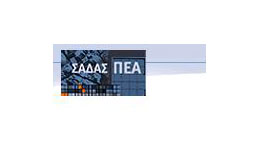
A reply to Diane D’ Arras’ statements on the her interview after the Thessaloniki Referendum.
Four months after her first Press Conference in Greece (given to a selected audience and journalists), and only days after the Thessaloniki Referendum (in which the citizens definitely declared their denial to EYATH’s privatization) Diane d’ Arras, the Executive VP of Suez Environement for SE Europe, makes a comeback this time with an interview:
It is quite impressive that the desire of Mrs D’Arras for acquiring EYATH seems undiminished despite the fact that more than 213.000 of the Thessaloniki water services “users” who voted NO to privatization of EYATH, would only welcome her in Thessaloniki as a tourist. The only logical conclusion one can deduce from such behavior is that the company is indifferent to the fact that it is unwanted by the vast majority of the citizens and the city councils of the area.
Of course, she has changed her avenue of approach and doesn’t speak anymore of acquiring EYATH but rather for a PPP, refering at the same interview to issues as new work positions, the Water Price Regulatory Authority, the protection of the environment, the water quality and the state of the Thermaikos Gulf. All these issues have been thoroughly addressed in our letter of 6th February 2014, however neither she nor any other Suez official cared to answer. For the record we never had any hope they would.
At one point , however Mrs D ‘Arras ” backs off ” and this is no other than the investments. This time she avoids mentioning the exact amount and refers us to the binding “secrecy” of the concession procedure. Besides the democratic deficit of the attempted sale , we now stand at pitch dark as to what Suez “offers”, to get hold of the lucrative EYATH in a contract not seen even by the city’s Mayors . We would like very much to know why this draft of the contract is not made public ( after all the HRADF sells our own property – and supposedly for our benefit). We sincerely hope that this secrecy is not necessary just because this contract is similar to the one enforced in Berlin that contained a clause for guaranteed large profits for the private buyer, unknowingly and against ” users “, which, after finally coming to light, was judged as illegal by the German Courts.
We can of course understand the embarrassment of Diane d’ Arras and her colleagues at our statement that their promised five year plan (with investments of € 25-50 m on infrastructure that would not belong to EYATH) on the basis of the company’s current and recent profit rate would need more than 30 years to start bringing profit. Such investments, we were stating in our letter, would mean that suddenly Suez has transformed to a charitable non-profit enterprise. So the new approach of Mrs d’ Arras in her comeback is the one of shedding a dark veil over the investment plan despite her initial generous promises.
Mrs d’ Arras did not hesitate (apparently considering Greece a backward country with no access to information) to put forth misleading or inaccurate statements. First by comparing the water price of public operators in Germany with that of private ones in France is like comparing apples to oranges. With this “logic” she did not dare to compare the water price of the public Greek companies to the private ones in France.
As to her assertions about the situation in France (which she has no right to ignore) and according to our colleagues in the French water movement:
• On water prices in France
The price municipal suppliers charge is 20% lower than the one asked by private operators.
• Regarding Paris
SAGEP, the company responsible for water services belonged to the French state and also to Suez and Veolia. After the remunicipalization of the Paris water services the price water price the users pay to Eau de Paris is 8% lower than the one SAGEP asked. Eau de Paris is profitable, and uses its profits for the maintenance and the modernization of its network.
• On privatization and PPP
The acquisition of the majority of a public company’s shares is privatization not a PPP. Of course by PPP she could mean that the Greek State will keep (and burden its citizens with the maintenance and modernization of) the network while Suez-owned EYATH will be paid by the citizens for supplying them with water and carry wastewater away through this same network. The water companies in France are local/area institutions (without shares, which therefore could not and haven’t been transferred) the management of which, when not done by the authorities, is given through a Délégation de Service Public to private companies (as are Suez and Veolia), who, as long as such delegation lasts, have full and absolute control over these. Such scheme has nothing to do with PPP; this may mean that Mrs d’ Arras isn’t aware of what the situation in France is.
Mrs d’ Arras may has not undertaken any obligation to conform to the results of the Thessaloniki Referendum, showing thus her real attitude towards democracy, carefully hidden behind her repeated invitation to local city council members (as delegates of the people) to become BoD members of the privatized EYATH (we have already commented on this too in our letter above). But she declared that she will comply to the ruling the Council of State will reach on the issue of the EYDAP and EYATH shares transfer to HRADF. She should therefore refrain from any further actions concerning the EYATH sale acceleration that the government and HRADF may attempt until such decision is issued.
May we also suggest that in the long run it could prove better for Suez if its directors tried to improve its financial results instead of spending money to set up conferences in Greece where their Greek political friends dig into appetizers.




